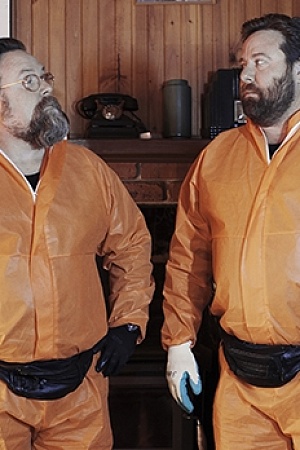Ratched
How, precisely, does a character unmoor itself from its source material? And how concerned should we be to track its progress – or should that be retrace its steps? These questions bugged me as I admittedly devoured Ryan Murphy’s new Netflix series, Ratched. Ostensibly a prequel, it re-contextualises and re-packages the unforgettable villain Nurse Ratched from Ken Kesey’s novel One Flew Over the Cuckoo’s Nest (1962) for entirely different aims, so much so that the original feels hopelessly far away. In fact, there’s little evidence of Kesey at all.
It’s curious that there isn’t a hint of him in there, given how engorged the show is on other past masters, particularly Alfred Hitchcock and Stanley Kubrick. Is it that Murphy wants slavish references only if they are universally recognisable? Or is there perhaps a slight anxiety fringing this series, a fear that Kesey’s anti-establishment rage might upset the Netflix overlords and should therefore be kept far beyond the hospital grounds? It’s surely not accidental that Mildred Ratched comes across as a deeply sympathetic battler of past trauma, rather than the manifestation of societal control (what the novel’s narrator Chief Bromden labels ‘the Combine’) that she clearly meant to Kesey. For him, Ratched was the iron fist on the throat of individualism.
Continue reading for only $10 per month. Subscribe and gain full access to Australian Book Review. Already a subscriber? Sign in. If you need assistance, feel free to contact us.















Leave a comment
If you are an ABR subscriber, you will need to sign in to post a comment.
If you have forgotten your sign in details, or if you receive an error message when trying to submit your comment, please email your comment (and the name of the article to which it relates) to ABR Comments. We will review your comment and, subject to approval, we will post it under your name.
Please note that all comments must be approved by ABR and comply with our Terms & Conditions.